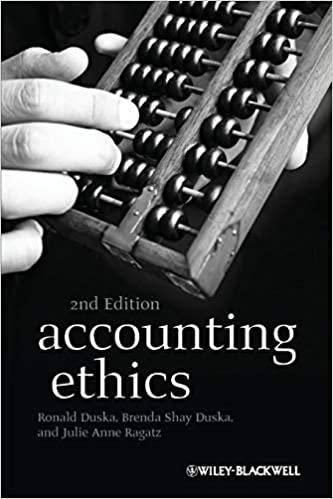The following information pertains to questions 22 - 26. Midwest Manufacturing Company (MMC) has two divisions in Ohio, Oscar Division and Bella Division. Currently, Bella buys 10,000 units of a part from Oscar for $16 per unit. Oscar, however, wants to increase the price that Bella pays to its full production cost of $18 per unit. Bella's controller claims that she cannot afford to pay a price that high, as it will decrease her division's profit to near zero. Also, Bella can buy the part from an outside supplier for $17 per unit. Assume Oscar has excess capacity to fulfill Bella's order and that Oscar's incremental cost per unit is variable cost of $12. Oscar's fixed costs per unit (which are all corporate allocations of common fixed costs based on Oscar's capacity) are $6. Q22. From the standpoint of the Oscar division, what is the lowest transfer price that should be accepted for units sold to the Bella division? O $12 per unit $16 per unit $17 per unit O $18 per unit None of the above The following information pertains to questions 22 - 26. Midwest Manufacturing Company (MMC) has two divisions in Ohio, Oscar Division and Bella Division. Currently, Bella buys 10,000 units of a part from Oscar for $16 per unit. Oscar, however, wants to increase the price that Bella pays to its full production cost of $18 per unit. Bella's controller claims that she cannot afford to pay a price that high, as it will decrease her division's profit to near zero. Also, Bella can buy the part from an outside supplier for $17 per unit. Assume Oscar has excess capacity to fulfill Bella's order and that Oscar's incremental cost per unit is variable cost of $12. Oscar's fixed costs per unit (which are all corporate allocations of common fixed costs based on Oscar's capacity) are $6. Q23. From the standpoint of the Bella division, what should be the highest acceptable transfer price for units purchased from the Oscar division? O $12 per unit $16 per unit O $17 per unit O $18 per unit None of the above The following information pertains to questions 22 - 26. Midwest Manufacturing Company (MMC) has two divisions in Ohio, Oscar Division and Bella Division. Currently, Bella buys 10,000 units of a part from Oscar for $16 per unit. Oscar, however, wants to increase the price that Bella pays to its full production cost of $18 per unit. Bella's controller claims that she cannot afford to pay a price that high, as it will decrease her division's profit to near zero. Also, Bella can buy the part from an outside supplier for $17 per unit. Assume Oscar has excess capacity to fulfill Bella's order and that Oscar's incremental cost per unit is variable cost of $12. Oscar's fixed costs per unit (which are all corporate allocations of common fixed costs based on Oscar's capacity) are $6. Q24. If the two divisions negotiate a transfer price, then will internal trade be successful? There is a range of acceptable transfer prices and internal trade will likely occur There is a range of acceptable transfer prices but internal trade will not likely occur There is not a range of acceptable transfer prices so internal trade will be unlikely There is not a range of acceptable transfer prices but internal trade will likely occur O None of the above The following information pertains to questions 22 - 26. Midwest Manufacturing Company (MMC) has two divisions in Ohio, Oscar Division and Bella Division. Currently, Bella buys 10,000 units of a part from Oscar for $16 per unit. Oscar, however, wants to increase the price that Bella pays to its full production cost of $18 per unit. Bella's controller claims that she cannot afford to pay a price that high, as it will decrease her division's profit to near zero. Also, Bella can buy the part from an outside supplier for $17 per unit. Assume Oscar has excess capacity to fulfill Bella's order and that Oscar's incremental cost per unit is variable cost of $12. Oscar's fixed costs per unit (which are all corporate allocations of common fixed costs based on Oscar's capacity) are $6. Q25. From the firm's perspective, what is the financial advantage (or disadvantage) of internal trade at MMC? That is, by how much is the firm better (or worse) off if Bella buys from Oscar instead of buying from the external market? $10,000 financial advantage $10,000 financial disadvantage $50,000 financial advantage O $50,000 financial disadvantage None of the above The following information pertains to questions 22 - 26. Midwest Manufacturing Company (MMC) has two divisions in Ohio, Oscar Division and Bella Division. Currently, Bella buys 10,000 units of a part from Oscar for $16 per unit. Oscar, however, wants to increase the price that Bella pays to its full production cost of $18 per unit. Bella's controller claims that she cannot afford to pay a price that high, as it will decrease her division's profit to near zero. Also, Bella can buy the part from an outside supplier for $17 per unit. Assume Oscar has excess capacity to fulfill Bella's order and that Oscar's incremental cost per unit is variable cost of $12. Oscar's fixed costs per unit (which are all corporate allocations of common fixed costs based on Oscar's capacity) are $6. Q26. Now assume Oscar does NOT have excess capacity to fulfill Bella's order because he is currently selling all his division's output to the external market at the market price of $17. In this case, what transfer price would be acceptable to both Oscar and Bella? $12 per unit O $16 per unit $17 per unit $18 per unit None of the above











